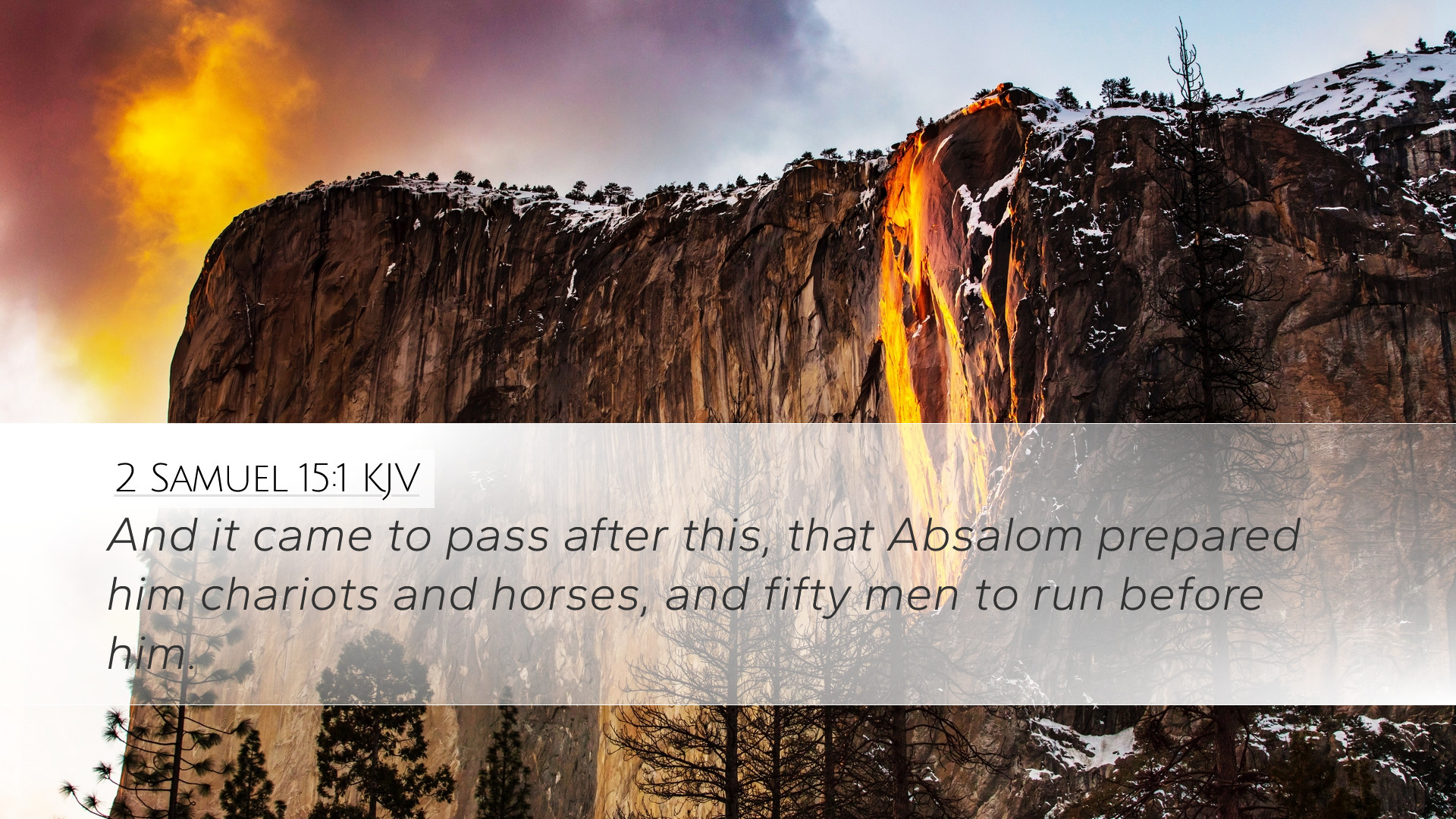Commentary on 2 Samuel 15:1
Verse Text: "After this, Absalom provided himself with chariots and horses, and fifty men to run before him."
Introduction
This verse marks a critical turning point in the narrative of 2 Samuel, illustrating the rise of Absalom, the son of King David, and setting the stage for the ensuing conflict. Through the insights of historic biblical commentators, we delve into the implications of Absalom's actions and their theological significance.
Commentary Insights
Absalom's Ambition
Matthew Henry notes that Absalom's actions are emblematic of a rebellious spirit characterized by ambition and a desire for power. The procurement of chariots, horses, and heralds indicates his attempts to project an image of royal authority, which is particularly significant given his status as a prince. This behavior is reflective of a heart turned away from divine allegiance, seeking instead the accolades of men.
Application for Leaders
For pastors and church leaders, Absalom’s ascent serves as a cautionary tale against ambition devoid of divine endorsement. It encourages leaders to examine their motivations and ensure that their aspirations align with God’s calling rather than personal ambition.
Symbols of Power
Albert Barnes emphasizes that Absalom’s chariots and horses are symbols of worldly power, reminiscent of the king’s might as described in Deuteronomy 17:16, which warns against the kings of Israel multiplying horses. Absalom’s actions illustrate a gravitation towards the very elements that God had instructed His kings to avoid.
Theological Reflection
This highlights a broader theological principle concerning reliance on human strength versus divine providence. Churches and ministries are prompted to reflect on whether they rely on strategies and appearances rather than the Spirit's guidance.
The Role of Followers
Adam Clarke comments on the significance of the fifty men running before Absalom. Such attendants were traditionally seen as an honor guard, signifying high status and approval. This entourage not only elevated Absalom's image but also sowed distrust among the people towards King David.
Application for Community Dynamics
The presence of followers can impact community dynamics significantly. It is paramount for spiritual leaders to cultivate a community grounded in unity and submission to God rather than allegiance to personality or human leadership.
Conclusions
2 Samuel 15:1 provides a vivid illustration of ambition, the lure of power, and the potential for divisiveness in leadership contexts. The combined insights from Henry, Barnes, and Clarke form a compelling narrative that warns, educates, and ultimately calls forward spiritual leaders to foster an atmosphere of humility and reliance on God’s providence.
Reflections for Contemporary Believers
- Consider the motivations behind your ambitions. Are they God-centered or self-serving?
- Reflect on the symbols of your power and influence. Are they aligned with God's will?
- Evaluate the followers and communities you cultivate. Do they reflect unity in spirit, or are they built on individual charisma?
In light of these reflections, may pastoral leaders seek to embody the heart of Christ in their leadership, aspiring not for personal crowns but to further the kingdom of God.


